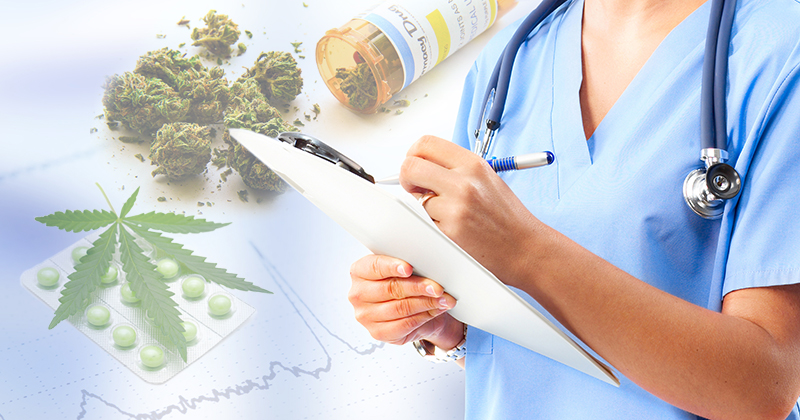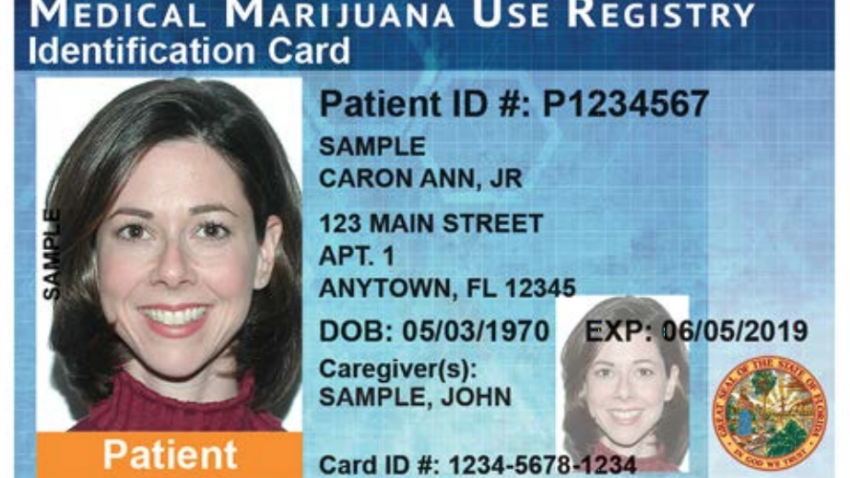 There also are links between marijuana and other mental health conditions. Marijuana use may trigger schizophrenia or detachment from reality (psychosis) in people who are at higher risk of psychosis. The symptoms of diagnosed psychotic illness may be aggravated if marijuana use continues. There also is some evidence that teenagers who attempt suicide may be more likely to have used marijuana than those who have not made an attempt. As with marijuana use and depression, more research is needed to better understand these associations. The bottom line is Marijuana use and anxiety and depression accompany each other more often than you might expect by chance, but there’s no clear evidence that marijuana directly causes depression. If you or a loved one is suffering from Anxiety or Depression, please contact All Natural MD Florida medical marijuana doctors today at (800) 250-6737.
Anxiety disorders and depression imply more than temporary fear or worries. For individuals with the disorder, anxiety does not go away but instead it gets worse with time. It might affect their daily activities, relationships and even their job performance. At times, physical evaluation to determine whether the patient’s anxiety is associated with physical illnesses is necessary. Also, the disorder is occasionally paired with conditions like depression, alcoholism and other coexisting conditions. If another medical condition exists, patients should seek treatment for them before seeking for anxiety disorder treatment.
Related Article
The success of prescribed medical weed for stress and anxiety is not under dispute. Nonetheless, there is some debate about the components causing the effects. There is some evidence the endocannabinoid system plays a role in anxiety and fear. This involves a complementary role for the cannabinoid type 1 (CB1) receptor. The major constituents of the cannabis plant are THC and cannabidiol CBD. Both are major players with the CB1 receptor. THC is a known psychoactive and the leading cause of cannabis euphoria. The compound activates specific brain centers controlling fear and anxiety. This activation is why anxious weed users should not self medicate.
Feelings of self-doubt and self-worth are common in anxiety disorders. Self-conscious persons second-guess themselves, wondering if others are judging them. This persistent doubt in everyday situations may turn obsessive. Social anxiety disorder leads to awkward social situations. Patients feel self-conscious and have blushing and trembling. There are nausea and vomiting, profuse sweating, or difficulty talking. The symptoms of anxiety may interfere with meeting new people or maintain friendships. Conversing, eating, or drinking in public can provoke severe anxiety.
Next Article
There also are links between marijuana and other mental health conditions. Marijuana use may trigger schizophrenia or detachment from reality (psychosis) in people who are at higher risk of psychosis. The symptoms of diagnosed psychotic illness may be aggravated if marijuana use continues. There also is some evidence that teenagers who attempt suicide may be more likely to have used marijuana than those who have not made an attempt. As with marijuana use and depression, more research is needed to better understand these associations. The bottom line is Marijuana use and anxiety and depression accompany each other more often than you might expect by chance, but there’s no clear evidence that marijuana directly causes depression. If you or a loved one is suffering from Anxiety or Depression, please contact All Natural MD Florida medical marijuana doctors today at (800) 250-6737.
Anxiety disorders and depression imply more than temporary fear or worries. For individuals with the disorder, anxiety does not go away but instead it gets worse with time. It might affect their daily activities, relationships and even their job performance. At times, physical evaluation to determine whether the patient’s anxiety is associated with physical illnesses is necessary. Also, the disorder is occasionally paired with conditions like depression, alcoholism and other coexisting conditions. If another medical condition exists, patients should seek treatment for them before seeking for anxiety disorder treatment.
Related Article
The success of prescribed medical weed for stress and anxiety is not under dispute. Nonetheless, there is some debate about the components causing the effects. There is some evidence the endocannabinoid system plays a role in anxiety and fear. This involves a complementary role for the cannabinoid type 1 (CB1) receptor. The major constituents of the cannabis plant are THC and cannabidiol CBD. Both are major players with the CB1 receptor. THC is a known psychoactive and the leading cause of cannabis euphoria. The compound activates specific brain centers controlling fear and anxiety. This activation is why anxious weed users should not self medicate.
Feelings of self-doubt and self-worth are common in anxiety disorders. Self-conscious persons second-guess themselves, wondering if others are judging them. This persistent doubt in everyday situations may turn obsessive. Social anxiety disorder leads to awkward social situations. Patients feel self-conscious and have blushing and trembling. There are nausea and vomiting, profuse sweating, or difficulty talking. The symptoms of anxiety may interfere with meeting new people or maintain friendships. Conversing, eating, or drinking in public can provoke severe anxiety.
Next Article
The Compassionate Use For Florida Medical Marijuana for Qualifying Medical Conditions ballot, or Amendment 2, was passed by Florida voters on November 8, 2016. Allowing the growing and selling of medical marijuana to qualified patients in Fort Myers Florida and all other Cities in Florida as the ballot was imposed to provide safe access and availability to medical pot for those who suffer from a qualified debilitating condition as listed by the State of Florida.
Before you can buy cannabis from a medical marijuana dispensary in Florida, you must first visit a licensed physician who is certified to prescribe medical marijuana after having completed the mandatory education requirements laid out by the State of Florida. The licensed marijuana doctor will then determine if you fall within the eligibility criteria to purchase medical marijuana. Once deemed eligible for a card by a doctor that is certified for medical marijuana you have to finalize the steps needed for a medical marijuana card in Fort Myers FL. The physicians at All Natural MD Fort Myers will assist you with every step of the process. Our address and google map information is listed below for your convivence.
All Natural MD Fort Myers
5237 Summerlin Commons Blvd. Suite V388,
Fort Myers, FL 33907
The cost is $75 for the for the Florida medical marijuana card per year. There is a $2.75 processing fee. The physician’s fee is $200 to $300, and is in addition to the state fee for your medical card. Your medical marijuana certification is only good for 210 days.
Not to by confused with your medical card, you have to renew your certification/recommendation orders every 210 days/7 months. You will want to contact and or visit one of our many locations including All Natural MD Fort Myers medical marijuana doctor for a reevaluation so that your recommendation orders with the state registry remain current. Call (800) 250-6737 today.
What’s the Recommended Dose of CBD?
There aren’t enough clinical studies to highlight a specific dosage range for Parkinson’s disease. However, there’s a lot of research on the use of CBD use for other neurodegenerative diseases, such as multiple sclerosis. Heavy doses of CBD are usually required to produce benefits for these conditions. The medical marijuana doctors at All Natural MD recommend 300-500 mg every 8 hours. Call or schedule your appointment online for a Florida medical marijuana card today.
What is Parkinson’s Disease
Parkinson’s disease is a neurodegenerative disorder that progressively causes neurons to die. One function of neurons is to create a neurotransmitter called dopamine, a chemical messenger responsible for sending messages between neural cells in the brain. Parkinson’s disease primarily affects dopamine-producing neurons in an area of the brain called the substantia nigra, causing critically low levels of dopamine that negatively affect motor function. The result of this is a gradual loss of motor control, with symptoms starting gradually, usually with a noticeable tremor in just one hand. However, people with Parkinson’s disease also often exhibit emotional and behavioral changes, including sleeping problems and depression. Taken together, this makes Parkinson’s a debilitating disease that affects the patient, but also those around them. Click here for more information on getting a Florida medical marijuana card.
Symptoms of Parkinson’s Disease
People with Parkinson’s typically start experiencing symptoms in the later stages of the disease, after a significant number of neurons have been damaged or lost. Symptoms develop slowly over multiple years, and they differ from person to person. Because symptoms often differ from one person to the next, not all symptoms listed below are necessary for a Parkinson’s diagnosis. Younger people in particular may only exhibit one or two of these symptoms, especially in the earlier stages of the disease.
Parkinson’s Disease Medications & Treatment
There is no cure for Parkinson’s disease. Because symptoms don’t exhibit themselves until the later stages of the disease, early diagnosis is difficult but scientists continue to search for ways to identify the early onset of Parkinson’s. While no treatment options currently available can slow or halt the progress of Parkinson’s disease, there are treatments available to improve its symptoms.
Pharmaceutical Interventions
Almost all Parkinson’s patients will eventually require medication to treat their motor symptoms. Several classes of medications are available, and often patients will be prescribed various strengths, formulations, and combinations of medications to improve their symptoms. These include:
Levodopa works by being converted to dopamine in the brain. Side-effects include nausea, usually requiring it to be taken with carbidopa. If symptoms return between doses (OFF periods) an infusion of levodopa that is administered through a tube called duopa, a powder form of levodopa which can be inhaled, or the new medication istradefylline (Nourianz) may be prescribed. Levodopa treatments are often delayed as long as possible as its effects wear off over time and it eventually stops working, causing the patient to develop movement problems called “motor fluctuations”.
Safinamide (Xadago) is prescribed when patients taking levodopa and carbidopa have a breakthrough of Parkinson’s symptoms that were previously under control. Side effects include trouble falling or staying asleep, nausea, falls, and uncontrolled, involuntary movements.
Dopamine agonists that imitate the action of dopamine in the brain to treat the motor symptoms of Parkinson’s disease. Examples include pramipexole, rot ropinirole and igotine that can be taken on their own or with levodopa. Side effects can include nausea, orthostatichypotension, hallucinations, somnolence, and impulse control disorders.
Non-Pharmaceutical Interventions
The most common non-pharmaceutical interventions include lifestyle changes that can help slow disease progression and make symptoms more manageable. These include eating a healthy diet and a proper exercise program to help maximize the potential of medications, increase energy, and promote general health and well-being in Parkinson’s patients.
Physical, occupational and speech therapies can help with walking and gait issues, fine motor skills, and speech and language issues that may arise with Parkinson’s disease while deep brain stimulation (DBS) may improve symptoms in certain patients.
If you or someone you know is suffering from Parkinson’s Disease and could use the benefits of medical marijuana, please contact one of All Natural MD’s locations in Florida to get started on your medical marijuana card and doctors recommendations all in one short visit. Contact All Natural MD today (800) 250-6737 or visit our website floridasmedicalmarijuana.com. We have locations in Orlando, Brandon, Tampa, Lakeland, Sarasota, Bradenton and more.


